 |
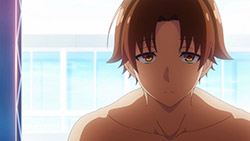 |
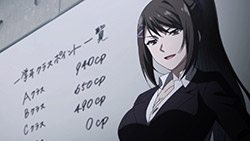 |
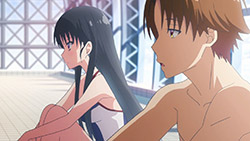 |
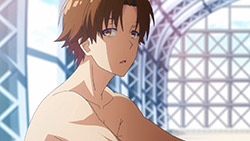 |
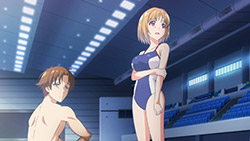 |
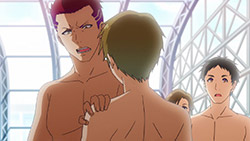 |
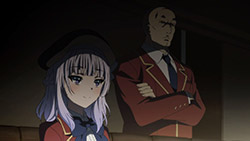 |
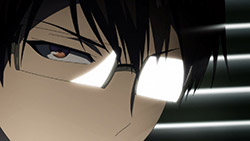 |
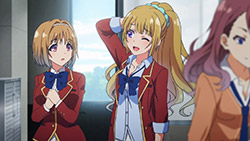 |
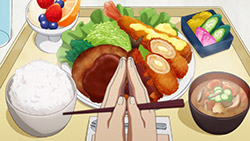 |
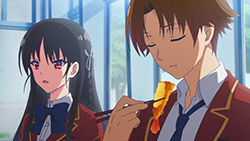 |
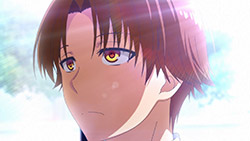 |
 |
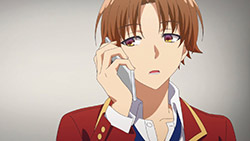 |
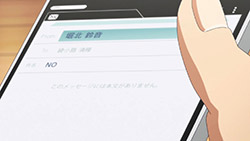 |
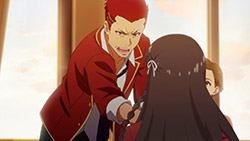 |
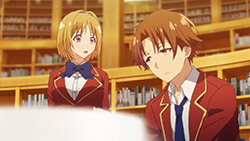 |
 |
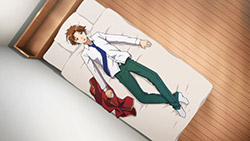 |
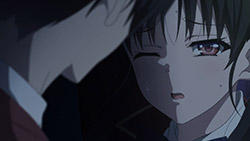 |
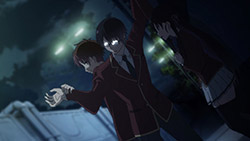 |
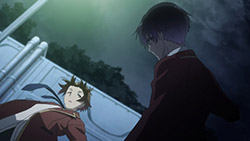 |
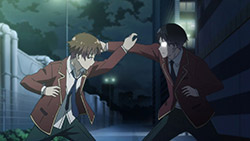 |
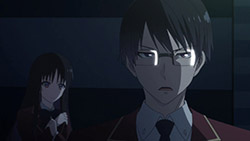 |
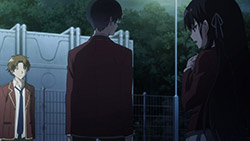 |
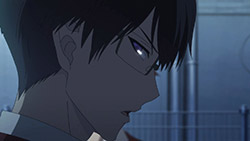 |
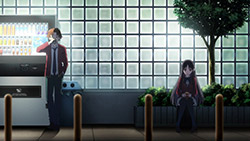 |
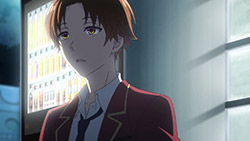 |
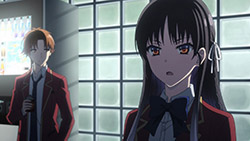 |
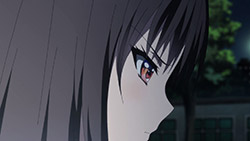 |
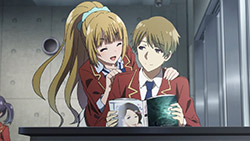 |
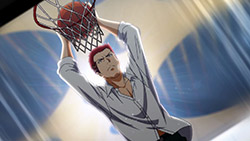 |
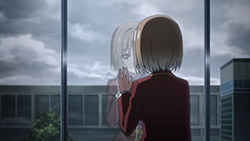 |
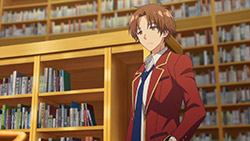 |
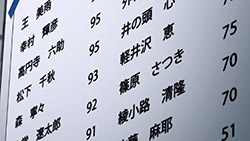 |
「才能を隠すのにも卓越した才能がいる。」 (Sainou o Kakusu no Nimo Takuetsu Shita Sainou ga iru.)
“It Takes a Great Talent and Skill to Conceal One’s Talent and Skill.”
Let’s talk about character flaws.
Imbuing a character with flaws is a great way to tell a story. It’s a tactic so elemental we’ve been doing it for literally—literally!—centuries. From Hercules’ struggles with excessive rage to Walter White’s tragic pride—and comedies utilize flaws too, I present you with Kazuma of KonoSuba and rest my case—we understand the hero’s journey to conquer their own flaws at a glance, and it energizes us. Once we realize a character has a flaw that’s standing in their way, we know there will be some kind of resolution by the end of the tale, even if they don’t achieve their stated external goal—which promises catharsis even as it throws the external goal into doubt. Beautiful.
But actually establishing the flaw is a delicate dance. What a well-implemented flaw does is make it so that, even when the character does something that we (the audience) know is dumb, we still understand why they couldn’t not do that, because that’s who they are. It provides this tension where we understand why they’re fucking up even while not entirely blaming them, but still partially blaming them and wanting them to change and adding this delightful frustration in the mix. It’s great storytelling—but it’s all predicated on either understanding why the character has this flaw, or in it not being a flaw for a long time before suddenly becoming an issue.
We’re on episode two, so the latter path—say, a character being a total hothead, but it doesn’t really hold them back until suddenly it does, I’m looking at you Katsuki #imjustguessing—isn’t available. They’ve got to establish flaws quickly without making the characters detestable, because once the basis of our relationship with a character is frustration, it’s too late. The well is poisoned, pack in the wagons, we’re done. This is a challenge that Youzitsu is having trouble with in regards to Suzune, but doing better at with Kiyotaka.
Suzune’s asshole behavior damn near did me in during the study group. There was a bucket of poison on the lip of the well, and it was teetering. It was so stupid and unnecessary, and frustrating, and we don’t know why she’s like this. Then we get to the scene with her nii-san, and it smacked of “Here! This! This is why she’s like she is!” And, okay, sure, but almost too late. Not too late! But almost. I think the story would have been better served by having her be prickly but not a problem until later on, when we’ve become used to her. As it is they front-loaded the flaw instead of the understanding, and that’s dicey.
Kiyotaka, on the other hand, is raising all sorts of interesting flags, because he’s not the focus. His seiyuu was less sleepy this episode, which was an improvement firstly. But then he cracks out the martial arts, and he lies about why he can do that, and we learn that he’s the Miyanaga Saki of quizzes, able to nail plus-minus zero—I mean, 50pts on any quiz he wants. The foreshadowing wasn’t subtle when Suzune was leering at his forearms, but because we’re getting mystery before either understanding or flaw, he’s interesting instead of frustrating. That’s a better move.
I’ve rambled on storytelling nonsense for too long. Let’s bring this back down from 10,000ft. Did we just watch an episode where the majority of the runtime was spent organizing and then failing to complete a study group? Because yeah, that happened. The pacing was rough, as the episode only really came alive when Kiyotaka started dodging kicks to the damn head, and before that it was a boring series of events where people did boring things. Good writing can make a conversation in an elevator at the Post Office compelling, but there are tricks to it Youzitsu wasn’t employing. It was just a lot of talking about boring stuff until, suddenly, it wasn’t.
Not much else to say, because if I get too far into the philosophy of this series, I’m going to get cross. Which is a sign that I might not be able to blog this, because eventually I’ll jump on my soapbox, and nobody wants that. I’ll only say one thing: this system promotes desperation, and desperation is not an emotion that makes for a more productive society. Hunger? Sure, a little hunger can do wonders for productivity and growth. (Note: That’s metaphorical hunger. It’s hard to be productive when your stomach is trying to eat itself.) But desperation turns humans into animals. The nice thing about this school is that it doesn’t make students too desperate—they all have places to stay and food to eat. But the twin specters of no money (note the faces of the students trying to borrow money) and the threat of expulsion are liable to drive people into a corner. (That the class hierarchy is a zero-sum came that incentivizes tearing the other classes down doesn’t help either.) The school might get some focused people out of this, but I doubt they’re actually going to learn much. They’re just going to learn it long enough for the test.
And expulsion, hah! I knew they had a way to get to “100%” without actually educating everyone. That’s a fake 100%, the system is still failing some people. Though I’m sure they’ll punish the surviving students if anyone drops out anyway. C’est la vie.
Random thoughts:
- She cannot reveal the details of their performance evaluations? Bullshit. That might occasionally be true to life, but employers who do that are assholes. Trust me, I’ve had one or two of ’em. They did not get anyone’s best work.
- Anime is full of hellaciously tough schools. I’d rather be in almost any of the other ones. At least they’re broken in more interesting ways.
My SECOND novel, Freelance Heroics, is available now! (Now in print!) (Also available: Firesign #1 Wage Slave Rebellion.) Sign up for my email list for exclusive content. At stephenwgee.com, the last four posts: I get it now!; Guardians of the Galaxy, Glee, & Firesign; That’s not supposed to go there . . .; and The Carcer Principle.
ED Sequence
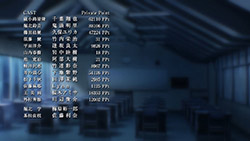 |
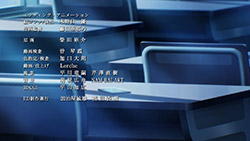 |
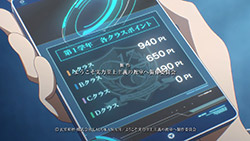 |
ED: 「Beautiful Soldier」 by Minami

This is so different from the novel..
The fact that Suzune can coaxed Kiyotaka to work with her but she expect the other three students to just accept her arrogant words for nothing perplexed me. Why she doesn’t realize she need some leverage to keep them from leaving? It may be to prove her flaw that was mentioned by Kiyotaka, but I believe she can take a smarter approach.
https://randomc.net/image/Youkoso%20Jitsuryoku%20Shijou%20Shugi%20no%20Kyoushitsu%20e/Youkoso%20Jitsuryoku%20Shijou%20Shugi%20no%20Kyoushitsu%20e%20-%2002%20-%20Large%2024.jpg
Woah..woah..woah! Wait a minute! Is this really okay? It means as long people are superior, one can punch his/her sister and kicking people?
Well, I mean, no, it’s not okay. But they might think it is.
And the government said this student will be the one carrying japan’s future pfft!
The more I watch this show, the more I get the impression that the academy is a giant sociological experiment laboratory. For one it is a deconstruction of the typical anime school. It aims to educate you very thoroughly through social Darwinism. All the troubles that most of us only see when we are in the workforce are laid at the feet of students. Very often adults find themselves in trouble due to some arcane rule or the whims of someone in power without even knowing why. This is also very true to life in Japanese corporate culture which has a very strict and defined hierarchy. I can kind of see what they are trying to do but I wonder if anyone had ever been informed. In keeping with their modus operandi, was it just a tiny blurb in the school handbook?
It reminds me a little of Tanya’s (Youjo Senki) special training for her Wing of mages and the philosophy of some institutions I have attended. “If you can pass the course, you will be a world beater. If.” As it stands it seems the school intends to raise hypercompetent sociopaths. It is basically the academic equivalent of special forces training. As this school is meant to be an elite institution, the faculty basically ran with that kind of mindset. If you cannot graduate, I reckon they see it as the student failing the institution, not the other way around.
The fact that
Yukino’sSuzune’s prickly nature stems from what appears to be a deep seated inferiority complex rooted in an excellent older sibling definitely recalls Oregairu save for the fact that Suzune’s brother appears to be far more abusive that Haruno. She seems to be in a phase of arrested development like how children suffering from parental abuse or neglect become very hostile to strangers as a self-defence mechanism. I am intrigued though by Kiyotaka. Is he the apathetic version of the protagonist of Golden Boy? Is there a pressing reason for him to appear thoroughly ordinary despite being what seems to be a genius level polymath? Does he want to fly under the radar or is it how he gets his kicks?I wouldn’t be so sure as to who is more abusive here. Physical abuse is not the only kind. And Yukino mentioned an incident or two from when Haruno was a child – I believe she was pretty hard to survive.
A hateful superiority complex brother vs poisonous mastermind goddess puppeteer is not even a contest.
Haruno actually looks out for her friends/family, her actions simply carry an intended ambiguity of intention. Ultimately, she means well, but for one reason or another, she gratifies others with tezukuri choco-poisons innocently wrapped in a beautiful package. Itadakimasu!
Compared to her, this guys is just a lousy brother taking his own problems out on others. The difference seems subtle, but is dramatic and lies in their mindset. I.e., only one of them is selfish.
Ah, to be clear – I still think she is more abusive, because she terrorizes others. There is a contradiction rooted deep inside of her.
I hate to admit it, but she really brings out the switch in me.
I agree that Haruno is a lot better at it, she is definitely subtle and manipulative. However Suzune’s elder brother hits the trifecta; he’s physically, verbally and emotionally abusive. Haruno appears to want Yukino to become her own person and emerge from her shadow. “Oniisan” instead denigrates Suzune and her efforts. I can believe that Haruno was much worse in her youth and has at least partially matured out of that phase. In the novels and anime, Haruno never actually does that much which can be construed as overtly abusive. Her very existence however seems to intimidate Yukino. Suzune’s brother wants to beat her up because apparently she is an eyesore to him. He would have if not for Kiyotaka. And what would happen to Suzune when she goes to class the next day covered in bruises?
Fair points. Her amicable smile and complete transparency with which she manipulates got the better of me. What we are talking about is not the sophistication of the act, but the intensity as felt by the victim. This brother guy is forgettable and puny, so I payed no mind, not realizing that as a family member, one idolizing him even, it is impossible for Suzune to escape the effects of the abuse. How does the system acknowledge his position as an A class exactly?
As for Haruno, I think Hayama Hayato likes her and she knows and intentionally tortures him by calling him to hang out only to score Hachiman points while openly stating her dislike towards him as a shallow guy. That is malicious. She also has a knack to instill terror not in the back alley, but in the limelight, with everyone smiling, try to forget that one.
From what I’ve found in writing my own novel characters, it’s that you start with the “smaller” flaws, but with a good quality in the next scene or subtly in the same one. Then you reveal the “major” flaw a little later on, once the character’s depth has been more or less established.
For example, the male lead in Starry Days & Sunlit Nights is at first portrayed as lazy but brilliant, then a scene showing his kindheartedness, then a little later on, a scene depicting his near-suicidal Guilt Complex that rivals or surpasses that of Shirou Emiya and all the frustration that comes with it, for him and others
Not necessarily. The key to remember is that flaws are not necessarily BAD attributes. They can be ones that are good, or at least don’t inspire immediate dislike in the readers. They can be a fear of death (understandable), or being young and inexperienced (justified), or too diligent, or too driven, or too damn nice for their own good. What makes them a flaw is that they’re getting in the character’s way—they’re too afraid of death to live their life, they’re so focused as to miss the forest for the trees, etc.
It’s just, when your flaw is “Suzune looks down on people,” which translates to, in effect, “Suzune is an asshole to people,” it’s a heavier lift, and you’ve got to be more careful. That’s why Kiyotaka’s and Kushida’s flaws don’t rankle in the same way; they’re not necessarily bad. But they are in the way of those characters’ ultimate success and/or happiness.
As for your tactic, I’d be concerned because it might make the reader understand the person more, but not necessarily the big flaw. That’s what’s needed—until the guilt complex (or whatever) is grokked, it’ll be frustrating to watch. Not that the tactic can’t work, far from it. It just doesn’t address what I was talking about with Suzune (while being more descriptive of Kiyotaka, though I think that’s more of a mystery angle at the moment).
I was in a rush, so I must’ve miscommunicated at some points in my statement. I never said it was bad 🙂
And thanks for that tip. I’ll keep that in mind so I don’t stray too much, because I actually do focus mostly on characters when I write; just part of my style.
And I really do agree with all your points. If I may contribute, I suppose I could parallel the “looks down on others” with a comparison of Shinji and Gilgamesh from Fate/Stay Night. One comes of as a total asshole, and the other… he kinda is justified yet even when he calls most people mongrels, he still kinda cares in his own twisted way.
In my poor understanding of Suzune’s character, I believe she is not looking down on people. She is expressing her dissatisfaction with people who do not give it their best, aimlessly fool around and with their lack of effort, (un)consciously bring down others – she has every right to look down on them in fact. And I’m 100% behind her frustration.
@Haruno
I don’t get it though. The class points is dependent on the entire class performing very well, such that it wouldn’t be enough for only one or two students to carry the entire class on their shoulders, correct? That’s the impression I’m getting anyway, so correct me if I’m wrong. In which case, these students need to be more collaborative with each other, so some people like Suzune and Sudo are unfortunately not doing enough in that regard because of their attitude. But if it actually is not the case that the entire class needs to perform well in order to rise in the ranks, then I guess Suzune’s way of thinking is sort of justified after all.
As I see it, right now Suzune is not doing much to understand other people’s positions and circumstances and it is convenient for her as an excuse to continue her Hachiman way. Her idea that if they can not perform they should be cut off is problematic because, well, in society, those that under-perform or have attitudes are still part of society, so problem remains.
To answer your point: I think Suzune’s behavior towards the poor souls is justified in the sense that if someone does not want to help or get help then he truly should not be part of a collective. Her alienating actions however are not justified because the underlying problem here is not these people under-performing, but lacking motivation and she is not only wasting effort by teaching, she also takes away the little motivation they have left.
The interesting thing I believe is that she knows this, she is simply not willing by principle to motivate them. It makes no difference to her whether they study and improve or fail and leave which is the crux of her issue (and reason for being in a D class) – what should matter is not how many people graduated, but how many of those that applied did.
Hope they clear up why such an “elite” school accepts people whom they know will not perform. Pretty obvious the rage-y basketball dude was not gonna do well, so how the hell did he get in in the first place?
Considering they all passed the exams, looks like they all have the “potential”, and thay can perform when motivated.
So they literally all get in to just give up as soon as they’re there? That just seems wired. Definitely makes for a better plot than everyone being a model student, but still.
Show Spoiler ▼
Hmm it’s more harsh than the totsuki system on shokugeki no “me”…while in totsuki only the winner’s matter.
In this s-system there are a criteria to enforce noblesse oblige so there are penalty for ace student(noble) not helping weak people(civilian) in his/her class…but on the other hand can’t it also be interpreted that the school pushing their responsibility to educate bad/weak students to this “noble” student?
Well it’s the same on real-life company when you getting pushed around to educate a stuck-up newbie..the difference is we still get payed! You damn sexy teacher!
https://randomc.net/image/Youkoso%20Jitsuryoku%20Shijou%20Shugi%20no%20Kyoushitsu%20e/Youkoso%20Jitsuryoku%20Shijou%20Shugi%20no%20Kyoushitsu%20e%20-%2002%20-%20Large%2003.jpg
They have changed quite a bit from the novel I see. They actually knew why their performance dropped in the novel and they eventually got Sudou and them to study together for the midterms. They also dropped all development of class in the anime adaption? Like, in the novel, they all talked together but here, I can’t recall a conversation?
The anime isn’t even a light version of the novel (XD), it’s significantly different, both in plot and in development.
That is a shame. I’d like to see the full thing.
I’m having a hard time liking the characters and the show. It tries to be OreGairu but it’s not.
For me, this show is a trainwreck in a similar way a Valvrave is. It just takes after SNAFU instead of a Gundam.
That being said, I do not understand the lack of like for the characters. This is almost exactly a Yukino-Hachiman-Yui + the rest. Wait a sec… old memories bubble up of “The Bitch” threads on MAL –
aaaaah now it makes so much sense. All is right with the world then.
I think I’m going to thoroughly enjoy this series, with Hikkigaya Kenichi and particularly “TheRealYukinoshitaBitch” Yukinoshita Suzune.
I’m not sure about the rest but the main guy is a real turn off. His character design, espicially his eyes makes him look like a chronic unhealthy stalker while his snarkiness compared to Hachi, is just too overbearingly pessimistic. Compared to Hachi, the latter interjects his snarkiness with humour and also it’s not chronically pessimistic. I think in short, I can’t seem to connect to the characters.
Though I must admit that OreGairu character archetype is strong. I’ll be sticking around because the premise is interesting.
I see. Thx for the input. I for one surprisingly like the MC. On the other hand, Kushida Kikyou rubs me the wrong way. Is she an extreme version of Yui or does she truly have no hidden agenda? My danger sensor goes off every time she appears on screen. Every time Suzune shuts her down I feel like my sanity has been saved for another day.
If you are familiar with Liar Games then it takes more from that than Oregairu.
https://randomc.net/image/Youkoso%20Jitsuryoku%20Shijou%20Shugi%20no%20Kyoushitsu%20e/Youkoso%20Jitsuryoku%20Shijou%20Shugi%20no%20Kyoushitsu%20e%20-%2002%20-%20Large%2001.jpg
Teacher a:hmmm how about this girl?
Principal:accepted!
Teacher b: why?! You haven’t even see the rest of her documents yet!
Principal:accepted because she have elite boobs!
Teacher a,b: ah~ I see, understood.
Well, if Kiyotaka is Saki then maybe Kushida is Nodoka.
Yeah, Suzune definitely rubbed me the wrong way with her behavior. If the intent of that was to establish more parameters for how the students are evaluated as Kyiotaka theorized to her, then that’s not gonna serve the characters well IMO. This school is pure bullshit, we already know that, we need to look at the characters more instead. Kyiotaka at the moment is keeping the boat afloat, not much anyone else. I mean honestly, I could understand where each student from class comes from (not so much Kushida still, though Suzune could use some of her behavior), but too much negativity from the student body from the start is gonna have a hard time getting cleared later on, if you know what I mean. The cliffhanger in this episode didn’t make sense either, unless we look at the episode title as a hint that applies to all students instead of Kyiotaka alone. This is one series in which the setting making the focus all about what the students do about it is crucial. I will stay around of course, but this has gotta pick up soon.
Guess this one is too sensitive for you from a storyteller perspective, huh Stilts? I can see why, I really do.
To be clearer, I want this show to work. The character flaws don’t need to be too negative, like with Suzune and Sudo. Kushida’s flaw is acceptable for me, even if it makes her completely unrelatable. The flaws need to be resolved, but not quickly. But at least more fleshing out is always a good thing, no matter what it reveals about characters.
Is time about staying on the Top while kick down the weak?
Looks like he captured a flag by revealing how bad ass he was.
Interesting. I didn’t even mind Suzune all that much – at the very least, even while she’s extremely undiplomatic, she isn’t really wrong with what she’s saying. The character which annoys me to no end is Sudou with his permanent boorish-loud aggressiveness. Then again, this might be because I know the novel, and 90% of the pro-Suzune scenes have been skipped over. Since there’s a good chance that episode 3 will show them, I’ll suppress my urge to spoil. So keep an open mind, Stilts.
https://randomc.net/image/Youkoso%20Jitsuryoku%20Shijou%20Shugi%20no%20Kyoushitsu%20e/Youkoso%20Jitsuryoku%20Shijou%20Shugi%20no%20Kyoushitsu%20e%20-%2002%20-%20Large%2003.jpg
https://randomc.net/image/Youkoso%20Jitsuryoku%20Shijou%20Shugi%20no%20Kyoushitsu%20e/Youkoso%20Jitsuryoku%20Shijou%20Shugi%20no%20Kyoushitsu%20e%20-%2002%20-%20Large%2014.jpg
Mrs.Boobs Diggity
Let me tell you two tales from North Carolina State University at Raleigh, NC, USA, that were told to me:
1.) One year the university decided to only accept A+/4.0 GPA students. But then the elite students got the “quantum leap” so many USA science & math universities do to their students, and the formerly elite students got their first B’s, C’s, and D’s that semester. The university had to change its’ criteria because so many students blew their brains out, suicided, when they got their report cards that semester. Once “ordinary” students were accepted who could deal with “ordinary” grades, the suicides dwindled back to normal stats.
2.) One year the Chemistry department decided to hold all of its’ students to the highest possible standards, and failed entire classes’ worth of students for two semesters in a row. The university chancellor told the head of the chemistry department to stop failing so many students (i.e., “knock it off”). The department resisted, and failed another whole semester’s worth of students. The following semester, the university fired every single chemistry professor except for the youngest professors, and had an almost entirely new chemistry department.
I agree totally with Mechamorph’s “As it stands it seems the school intends to raise hypercompetent sociopaths. It is basically the academic equivalent of special forces training.” Having been in 6 years of ROTC with two colleges and 17 years of the US Army, I can tell you this is exactly how cadets and soldiers are trained. In the Junior-summer ROTC camp, out of 40 cadets in a barracks, you have one “5”, eight “4”, and the rest get “3A” to “3C”. The result is Shark Tank.
In the Army, you get a “70” or less on a test, you are expelled from the class, which could include being asked to leave the Army “for the good of the service”. Suzune’s cold attitude represents about 50% of Army people that I have come across, and 100% of those from the Infantry/Combat Arms, who try to make everyone else in the Army Infantry as well. The higher students’ attitudes towards Class 1-D is also eerily similar to elite Army units vs. “normal” Army units, or even non-combat soldiers, such as Supply, Signal Corps, or Transportation.
The difference between my Army/ROTC memories and this anime is that the school gave all the benefits up front, and then let the students fail until the beginning of the first month. The Army told you the requirements up front, and you didn’t get paid until much, much later, or not at all (until you qualified for Veteran’s Administration benefits). I have had to pay for my own hotel and food off of my credit cards because I didn’t get paid the first three weeks of an Army class I was in. The same for being deployed out of a National Guard unit as a single person – I had to do all of the arrangements for my apartment, car storage, bill paying, etc myself.
So I’m interested in seeing both the similarities and the differences between Youkoso Jitsuryoku and Army/real life. If the students don’t end up being murdering psychopaths at the end of their three years. That female teacher had better have bodyguards for the rest of her life, at this rate.
Thats why this kind of Social in this Anime reminds me of the WW2 School area. Only to produce Top Elite Students, and the Strongest stay on Top… aka Hilterjungend and similar ones.. Just look at History dark sides.. But even some Big Country Player still use it today, China
It weeds out undesirable personalities, which makes sense when one considers that the people who make it through will be in positions of power and authority.
It’s set up that way for the same reason that the details of the point allocation won’t be explained: That’s how it is in reality, and the students either figure it out or be hoisted by their own petard.
Fits into the entire collective punishment/reward set-up they got there. That so many students don’t grok this comes across as implausible.
On the contrary, and as noted above, real life doesn’t work like that. The point of this school isn’t to help the students reach their potential, but provide an environment that rewards those who figure out how to reach that themselves. In other words, it is making sure that the people you want in positions of power and authority truly are capable and deserve the to be there.
Actually, in real life you are told “the rules” by others in society before reaching the age of majority, if the civilization is sane. It is when corruption, underhandedness, multiple standards, etc intervene that “the rules” become unspoken.
Much like we are told how to go to work 9-5, dress appropriately, engage in microeconomics, stay out of jail, etc while we are maturing. It is only after someone tries to get an apartment, go grocery shopping, buy a car on loan, start a business, run for politics, etc that the unspoken rules of politics, or monopolistic business owners, or local mobsters, or local corruption make “the rules” unspoken. They are not spoken of in polite society, because those in power do not want to be spoken of.
You can say that this school is teaching the students “real life”, but once again pointing to Mechamorph’s comments above, the results are not productive members of society, but sociopaths and psychopaths pushed into corners and changed.
I will continue watching..
we learn that he’s the Miyanaga Saki of quizzes, able to nail plus-minus zero—I mean, 50pts on any quiz he wants.
Actually, he appears to be able to hit any score he wants. Pay attention to the results at the end: he’s tied with or no more than 5 points above the lowest score in the class in everything but English (where one person barely passed).
He’s coasting and trying not to stand out.
Suzune’s flaw may be blunt but in a society that’s still largely collectivist in nature it’s also fatal. She’s one of the smartest people in the class, but no one wants to work with her. That’s not her brother’s fault: if you pay attention to what he says to her, it’s her own failing and something she’s refused to accept. That clearly angers him to no end and is why he says she will fail.
This is also most likely why she’s been dumped into class D instead of class A. The more I watch the show, the more I begin to think that the school is there to teach both knowledge and correct behaviour. We’ll see as we get more flaws highlighted.
There is positive reinforcement and negative reinforcement. This “S-System” is doing it all wrong, giving them 100,000 points/yen at the beginning and then penalizing them for the next three years.
Suzune’s brother is doing it all wrong, because he is not telling her in a positive way how to change herself, he is saying “Give up”, and even resorting to physical violence to drive the message.
As the opening “bus seat” scene shows, there is morality in addition to rules. This is why the ends does not justify the means outside of total warfare.
Suzune’s brother is doing it all wrong, because he is not telling her in a positive way how to change herself
There comes a point in every relationship where you stop being polite when someone keeps making the same mistakes over and over again. Her brother is past that point (to an extreme level to be sure). You need to note how everything he says about her is in the form of what he considers to be continuing bad behaviour: he’s clearly said all this before and quite frankly tired of saying it.
The opening scene also shows that none of the characters – save for Kushida who has her own issues – are particularly moral. They’re spoiled self-centred kids who’ve been handed everything in life. Some people would argue that the S-System is exactly what they need.